7 Ways To Put Everyone On the Slopes
In Vermont, six organizations are making sure that everyone, no matter their circumstances, has an opportunity to ski or ride.
It’s a January night and 15-year-old Sean (real name withheld) is flying down the slopes of Bolton Valley on his snowboard. Confident and alert, you would never know that he strapped in for the first time six weeks ago. And given the ear-to-ear smile on his face, you would never guess that back home, Sean’s life isn’t easy.
Sean had a tough upbringing in the Northeast Kingdom. His parents were in and out of prison, and he was passed from family member to family member as a result. When he was three years old, he was abused by his uncle. He was transferred to foster care, where he spent the next eight years. When he was 11, he was assaulted by a trusted caregiver.
That year, Sean was arrested for an assault against a classmate who had bullied him. He was taken 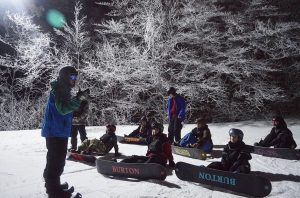 to a juvenile justice diversion program, and then, finally, enrolled in a residential treatment program where he could work through the decade-plus of trauma he had endured.
to a juvenile justice diversion program, and then, finally, enrolled in a residential treatment program where he could work through the decade-plus of trauma he had endured.
Lucky for Sean, that treatment program is a long-time partner of the Chill Foundation.
Jake and Donna Carpenter, founders of Burton Snowboards, started the non-profit Chill in 1995 with the goal of connecting youth to boardsports. Chill operates programs across North America, but in Vermont, the programming is broken into six sessions. In summer, kids stand-up paddleboard (SUP) on Lake Champlain. Fall, they skateboard at Talent Skatepark in South Burlington. Winters, they snowboard in the evenings at Bolton Valley and, also operate a day program at Stowe.
The sessions are held every week for six weeks in the summer and fall, and twice per week during the winter. Each week participants and their chaperones (who come to Chill with the kids from their schools and treatment programs), practice one of Chill’s six themes: patience, persistence, responsibility, courage, respect and pride. A short lesson, focused on the theme, precedes the riding.
On top of that, each participant sets up sport-related and personal goals for the session. They might want to cooperate better with their parents, or they might challenge anxiety by riding the chair lift for the first time.
“If you’re in residential treatment, you’re staring at the same four walls all day long,” says Alex Bornstein, Chill’s executive director. “You’re talking to the same people, the same kids, the same counselors, and you don’t have an opportunity to practice what you’re learning. Say you have an anger management issue—out here, you’re getting frustrated trying to learn a new sport. You’re meeting new kids, getting told what to do by new adults. Being out on the mountain, you get to apply the things you’re learning in treatment. Chill is incredibly unique because we foster an environment that allows that to happen.”
Chill staff members don’t know why the participants have landed in their programs, and they don’t ask. Instead, for six weeks, kids get special attention from adults who focus more on their progress than their troubled backgrounds.
“I didn’t know how to put on snow pants, and the boots were really complicated, but it seemed like everyone was there just to make sure I had a good time,” Sean said. “No one had ever paid attention to me like that, and it made me want to try my best on the mountain.”
Sean just completed his first full year as a Chill kid—he’s done all three sports in all seasons—and 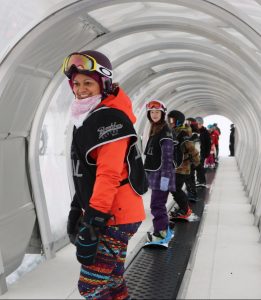 he’ll be on the mountain again this winter. Time spent as a participant varies based on the location and the organization, but most kids can spend up to three years in Chill before becoming a mentor, at which time they coach the other kids in the program.
he’ll be on the mountain again this winter. Time spent as a participant varies based on the location and the organization, but most kids can spend up to three years in Chill before becoming a mentor, at which time they coach the other kids in the program.
When a participant’s time at Chill is over, they join a nation-wide network of Chillers, and can meet up with other past participants who live nearby. Currently, Chill is working with mountains to offer discounted lift tickets and rental gear to current and past participants.
Chill is one of many on-snow programs in Vermont to make snow sports accessible to those who otherwise wouldn’t have an opportunity to ski or ride. Some, like the Kelly Brush Foundation, give disabled athletes sports equipment designed specifically for their disabilities, making it possible, for example, for wheelchair-bound athletes to ski, hike, bike and board. Vermont Adaptive organizes state-wide, year-round recreational programs and outings for athletes of all disabilities—cognitive, developmental, physical and emotional.
The High Fives Foundation gives grants to help athletes recover from injuries. Former pro snowboarder Kevin Pearce started Love Your Brain to help others who have suffered traumatic brain injuries heal, and Special Olympics Vermont gives those with intellectual disabilities a shot at competing on national and global stages.
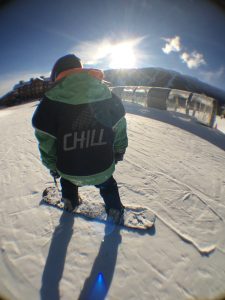
In Vermont, Chill’s participants are, as Bornstein puts it, “kids who have been neglected in some way, or face huge challenges that are outside of what most teenagers experience. For some,” he says, “it’s their own doing, but for the vast majority, it’s just circumstance or bad luck.”
Chill, headquartered in Burlington, is growing—during 2017’s spring and summer season, it exceeded every metric that the organization uses to track its progress. This year, Chill expects to see 1,500 participants nationwide, and they’ve worked with 22,000 since the program began in 1995.
Chaperones say that Chill is truly helping the kids. “Sean is reaching milestones that his treatment team didn’t think were possible, given where he started,” his chaperone said. “We have to credit the Chill program for helping him see himself in an entirely new way.”
Sean thinks the program is working, too.
“Before Chill I only thought about what was right in front of me,” he said. “Tomorrow didn’t exist. Now I know there is a whole world open to me if I can work through my challenges and be open to new opportunities.”
As the holiday season approaches, if you want to give back, we’ve compiled a list of seven good causes, in alphabetical order:
Top photo: Courtesy of Vermont Adaptive; Above photos: courtesy of The Chill Foundation

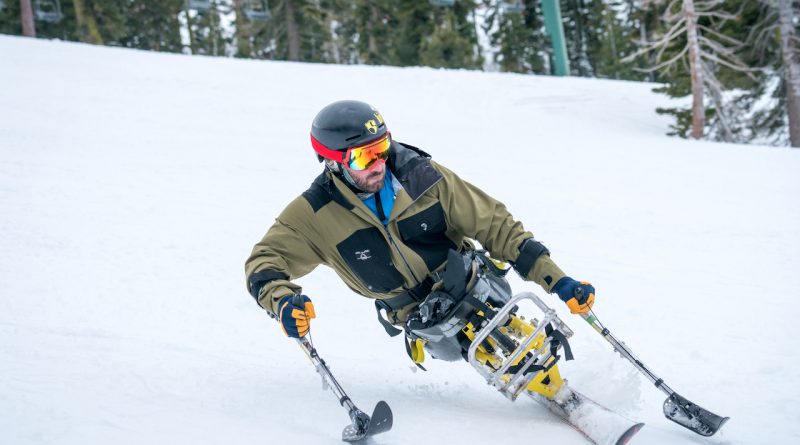
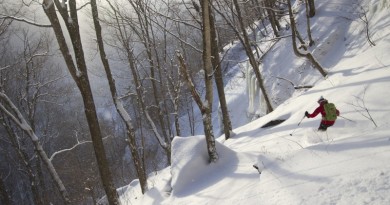
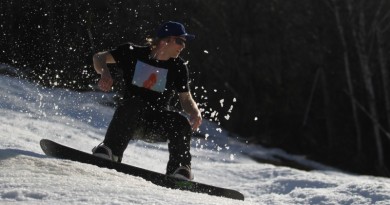
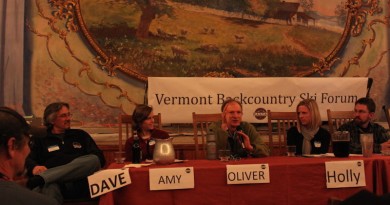
Pingback: Local Profile: The High Fives Foundation — VT SKI + RIDE
Pingback: Local Profile: Special Olympics Vermont — VT SKI + RIDE
Pingback: Local Profile: Love Your Brain— VT SKI + RIDE Magazine
Pingback: Local Profile: The Kelly Brush Foundation — VT SKI + RIDE
Pingback: Local Profile: Vermont Adaptive — VT SKI + RIDE Magazine
Pingback: Local Profile: The Chill Foundation — VT SKI + RIDE Magazine